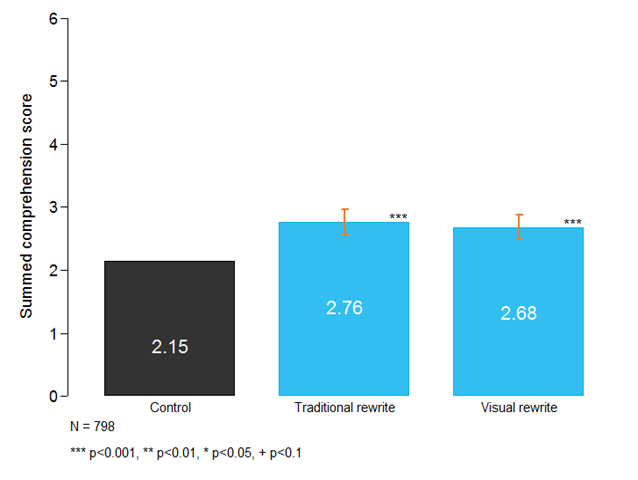Greater Manchester Combined Authority worked with the Behavioural Insights Team to improve the client consent process for its Working Well employment support programme.
The challenge
Local authorities and their partners often need to get consent from people about data sharing. This can be difficult, as it can be hard to explain clearly and succinctly how information might be used. This can be especially tricky in programmes that cut across multiple public or private sector providers, especially for programmes offering integrated help (like the Troubled Families programme).
The Working Well programme in Greater Manchester – an intensive employment support offer for people who have been out of work for some time – faced this challenge. Programme providers were frustrated that they spent up to 30 minutes of their first appointment with clients (nearly a third of the meeting) going through a complex and legalistic Privacy Notice.
How do you speed up and ‘humanise’ the consent process, without compromising on comprehension?
The solution
We ran an online experiment where people were given either the current Privacy Notice or one of two new versions to read.
The ‘Traditional Rewrite’ was a simplified two-page version of the Notice. The ‘Visual Rewrite’ further simplified the content by using images and graphics to convey key messages. Once they had read the Notice, participants were then asked a series of questions to measure how well they had understood what they had read.
The impact
Both rewrites improved comprehension compared to the existing Notice (the ‘control’). In addition, neither had any effect on how likely people said they would be to take part in the programme if it was offered to them. The ‘Visual Rewrite’ was the most successful as it had a lower reading age and reduced the number of people ‘dropping out’ of the online experiment before the end.
How is the new approach being sustained?
The updated Notice is now being rolled out across the Working Well programme. GMCA are also exploring how the same type of approach could be applied to other programmes with a similar need to get consent to share information across several different organisations; such as the Troubled Families programme.
Lessons learned
It is possible to rewrite complex, legalistic information sharing documents in a more human and easy-to-understand way. It is also possible to do this while ensuring that people understand the core facts about how their information could be used.
Contacts
Thomas Britton
Greater Manchester Combined Authority
Andy Hollingsworth
The Behavioural Insights Team

